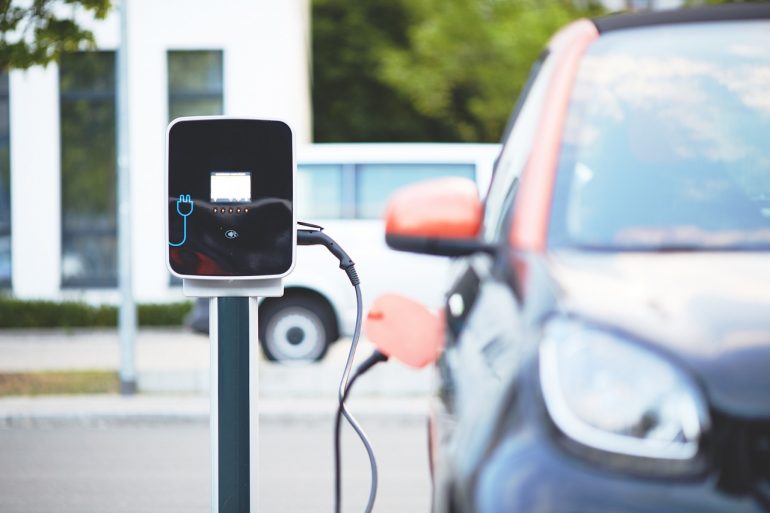The automotive landscape is shifting gears, with electric vehicles (EVs) accelerating to the forefront as sustainability and carbon emission reductions become priorities for consumers. The debate between sticking with traditional internal combustion engine (ICE) vehicles or switching to EVs is heating up. In this blog post, we will navigate through the advantages and drawbacks of both ICE vehicles and EVs. This will empower you to choose a vehicle that aligns with your lifestyle and ethical considerations.
So buckle up as we dive deeper into the ICE vs EV showdown.
The Case for Internal Combustion Engine (ICE) Vehicles
Pros of ICE Vehicles
1. Widespread Infrastructure: Gasoline and diesel fueling infrastructure is well-established and readily available. You can find gas stations in virtually every corner of the country, making long-distance travel convenient.
2. Familiar Technology: Many consumers are familiar with the workings of ICE vehicles, including maintenance and repairs. Mechanics trained to work on ICE vehicles are widespread, and replacement parts are easily accessible.
3. High Energy Density: Liquid fuels like gasoline and diesel have high energy density, allowing ICE vehicles to travel long distances on a single tank of fuel.
4. Quick Refueling: Filling up a gas tank takes minutes, providing a significant advantage in terms of convenience compared to charging an EV, which takes longer.
5. Lower Upfront Cost: ICE vehicles generally have a lower upfront purchase price compared to EVs, making them more accessible to budget-conscious consumers.
Cons of ICE Vehicles
1. Emissions: ICE vehicles produce harmful tailpipe emissions, including carbon dioxide (CO2), nitrogen oxides (NOx), and particulate matter (PM), contributing to air pollution and climate change.
2. Fuel Costs: The price of gasoline and diesel can vary widely, and the long-term cost of fuel for ICE vehicles can be unpredictable.
3. Maintenance: ICE vehicles require regular maintenance, including oil changes, spark plug replacements, and transmission fluid flushes, which can add up over time.
4. Dependence on Fossil Fuels: ICE vehicles are reliant on fossil fuels, which are finite resources and subject to price volatility.
The Case for Electric Vehicles (EVs)
Pros of EVs
1. Zero Emissions: EVs produce zero tailpipe emissions, reducing air pollution and greenhouse gas emissions, especially when charged with electricity from renewable sources.
2. Lower Operating Costs: EVs have fewer moving parts than ICE vehicles, leading to reduced maintenance costs. Charging an EV is typically cheaper than refueling with gasoline or diesel.
3. Environmental Benefits: The transition to EVs can contribute to a reduction in overall carbon emissions, making them a sustainable choice for environmentally conscious consumers.
4. Quiet Operation: EVs are quieter than ICE vehicles, contributing to reduced noise pollution in urban areas.
5. Instant Torque: Electric motors provide instant torque, resulting in responsive acceleration and a smooth driving experience.
Cons of EVs
1. Limited Range: While EV ranges are improving, they may still be limited compared to some ICE vehicles, making long trips challenging without access to fast chargers.
2. Charging Infrastructure: Although expanding rapidly, charging infrastructure is not as widespread as gasoline stations, requiring more planning for long-distance travel.
3. Charging Time: Charging an EV takes longer than filling a gas tank, especially when using standard Level 1 chargers. Fast chargers are quicker but may still require more time than a traditional refueling stop.
4. Upfront Cost: EVs can have a higher upfront purchase price than their ICE counterparts, although this gap is gradually narrowing
5. Limited Model Variety: While the variety of EV models is growing, some niche vehicle types (e.g., heavy-duty trucks) may have limited electric alternatives.
Making the Right Choice for You
The decision to go with an ICE vehicle or an EV ultimately depends on your specific needs, preferences, and values. Here are some key considerations to help you make the right choice:
Consider an ICE Vehicle If…
- You frequently take long trips in areas with limited EV charging infrastructure.
- You have a lower budget for your vehicle purchase.
- You’re more comfortable with the familiarity of ICE technology.
- You prioritize quick refueling for your daily commute.
Consider an EV If…
- You want to reduce your carbon footprint and contribute to environmental sustainability.
- Your daily driving needs fall within the range of an EV.
- You’re looking for lower long-term operating costs and reduced maintenance.
- You value the quiet and smooth operation of electric motors.
Hybrid and Plug-In Hybrid Options
For some consumers, a middle ground between ICE and EVs may be found in hybrid or plug-in hybrid vehicles. These vehicles combine an internal combustion engine with an electric motor, offering the benefits of both technologies.
Conclusion – a changing landscape
The car industry is charging ahead, with electric vehicles (EVs) steering towards mainstream availability and convenience. While traditional internal combustion engine (ICE) vehicles retain their perks, the lure of EVs—owing to their environmental friendliness and potential for lower lifetime costs—is growing stronger. With the rapid expansion of charging networks, the road to electrified transport is getting smoother by the day.
Deciding between an ICE vehicle and an EV is a deeply individual one, with no universal solution. It’s important to weigh factors such as your driving patterns, financial considerations, and environmental concerns. The decision should resonate with what you hold most important in your daily life and broader ethical views. No matter which direction you choose, one thing’s clear: electrification is the horizon for the auto world, driving us toward an era rich with ecological mindfulness and breakthroughs in technology.





